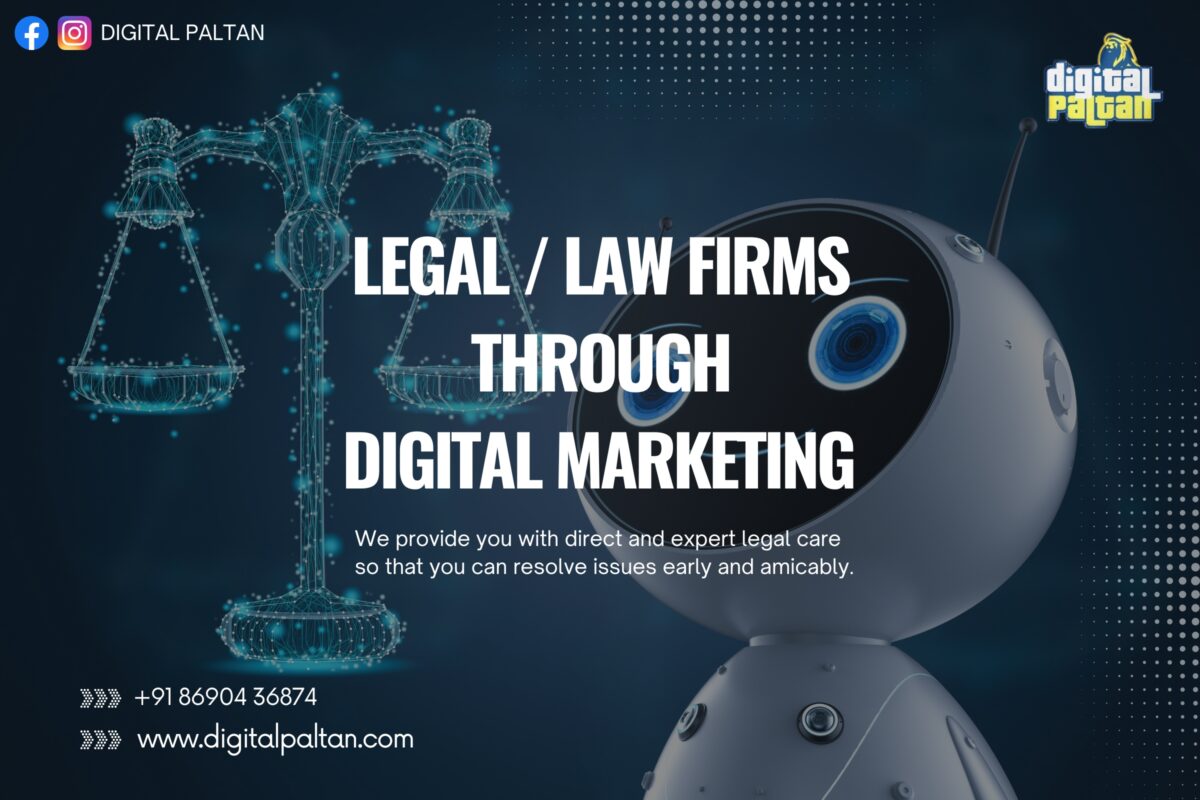The legal sector has acknowledged the necessity of using digital marketing tactics in the current digital era in order to gain a competitive edge, improve brand awareness, and draw in new clients. Innovative digital strategies that make use of the internet and technology are supplementing or replacing conventional marketing techniques. In this essay, we examine the field of legal/law firm digital marketing while highlighting practical tactics to promote development and achievement in the digital sphere.
Developing a Powerful Online Presence
For legal services and law firms to build credibility and appeal to a larger audience, a solid internet presence is crucial. An effective marketing tool is a well-designed website that displays the firm’s values, domain knowledge, and accomplishments. It should be frictionless for users on desktop and mobile platforms by being optimised for both. The website should also include educational material that highlights the firm’s practise areas, attorney biographies, success tales, and client endorsements.
enhanced visibility through search engine optimisation
Legal professionals and law businesses must prioritise search engine optimisation (SEO) in order to raise their organic search results and draw in more relevant website visitors. Businesses may raise their exposure in search engine results by undertaking keyword research, optimising website content, and constructing quality backlinks. The possibility of attracting prospective clients who are actively looking for legal services increases as a result, as does website traffic.
Utilising content marketing to create ideas that matter
By using content marketing, lawyers and law firms may build thought leadership in their practise areas, exhibit their subject-matter expertise, and offer insightful commentary. Businesses may interact with their target audience and establish trust through educational blog posts, articles, whitepapers, and case studies. Firms may attract potential clients who are looking for trustworthy legal information by addressing prevalent legal problems, providing helpful counsel, and showing their expertise.
Advertising Using Pay-Per-Click (PPC) for Targeted Exposure
By presenting tailored ads on search engines and social media platforms, pay-per-click (PPC) advertising helps lawyers and law firms achieve rapid visibility. Businesses may reach their target audience at the ideal time by bidding on relevant keywords and demographics. By accurately targeting prospective clients who are actively looking for legal services, effective PPC campaigns may generate quality leads, raise brand recognition, and maximise return on investment (ROI).
Engagement on social media and brand building
Social media platforms provide useful chances for lawyers and law firms to interact with their audience, increase brand recognition, and develop partnerships. Having a presence on social media sites like LinkedIn, Facebook, and Twitter enables businesses to communicate market insights, news updates, and pertinent legal information. Firms may establish themselves as reliable authorities in the legal industry by actively participating in debates, answering questions, and producing insightful information.
Managing Online Reputation
For lawyers and law businesses, maintaining a good internet image is essential. Before using legal services, clients frequently look for evaluations and recommendations. Building credibility and trust involves carefully managing and monitoring internet reviews while reacting swiftly and effectively. Additionally, businesses should encourage pleased customers to provide favourable evaluations because this will boost their reputation and draw in new customers.
Email Promotion to Engage Customers
Legal professionals and law firms may use email marketing to nurture leads, keep in touch with clients, and encourage repeat business. Firms may publish pertinent articles, give insider information, and provide useful legal updates by segmenting their email lists and distributing personalised content. By doing so, the firm’s knowledge and dependability are strengthened, engagement is raised, and customer connections are strengthened.
Acknowledging Emerging Technologies
The marketing activities of law firms may be greatly streamlined by embracing emerging technologies like artificial intelligence (AI) and automation. AI-powered chatbots can instantly respond to frequent consumer questions, enhancing the customer experience and generating leads. Tools for automation may speed up data analysis, social media scheduling, and email marketing campaigns, saving time and improving marketing tactics.
Conclusion
Legal and law firms’ approaches to marketing have been completely transformed by digital marketing. Legal professionals and law firms can increase their visibility, draw in new customers, and bolster their position in the digital landscape by leveraging a strong online presence, putting SEO strategies into practise, engaging in content marketing, using PPC advertising, creating a social media presence, managing online reputations, using email marketing, and embracing emerging technologies. In the highly competitive economy of today, use the power of digital marketing to take your legal practise or law company to new heights.



